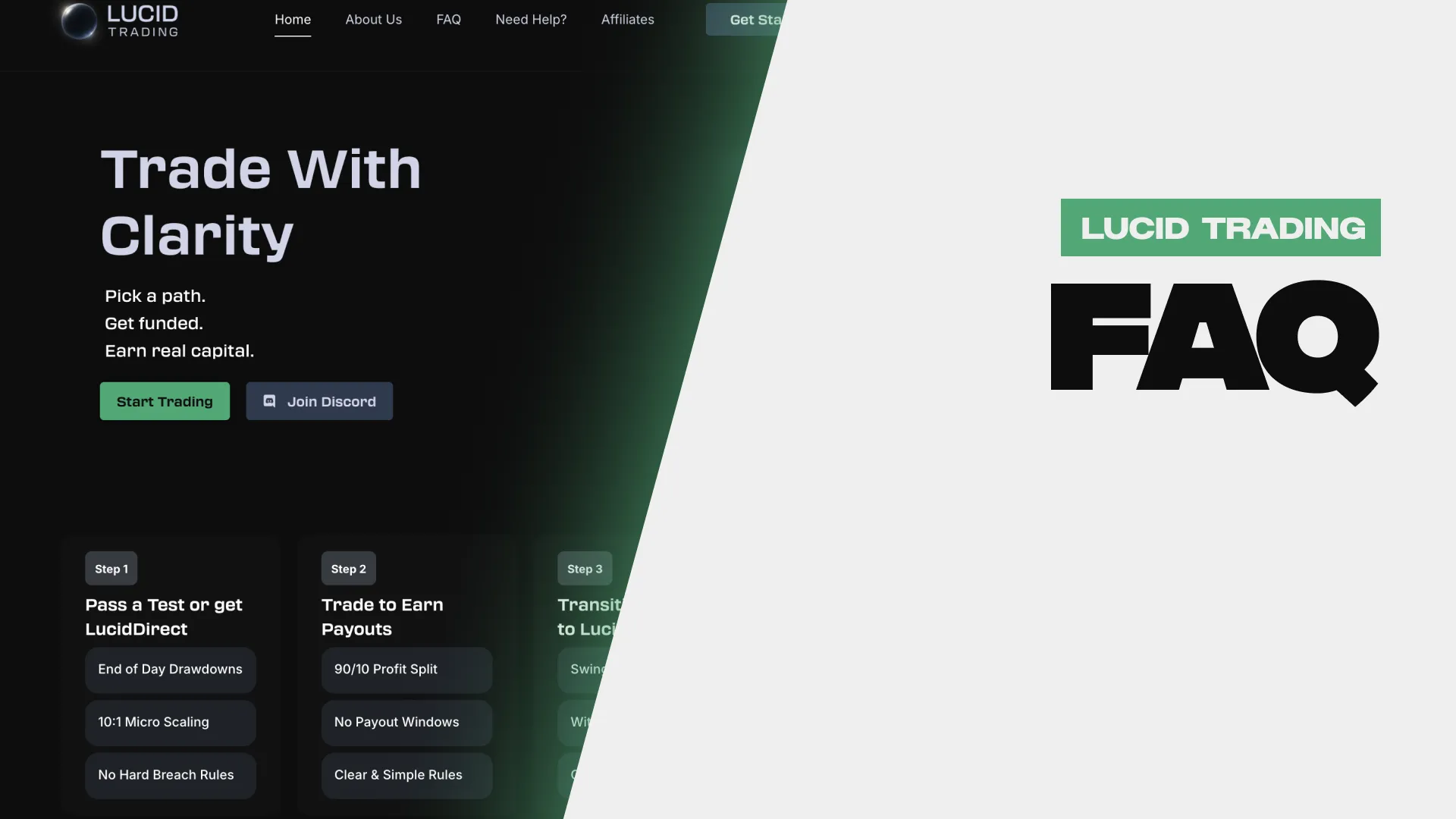The Truth About Discord Groups in Prop Trading
When I first got into prop trading, I thought joining Discord groups would be the missing piece. Real-time setups, direct advice, maybe even a mentor or two.
What I got instead? Noise. Flexes. Random signals with zero context. And a lot of traders chasing hype instead of building something real.
Don’t get me wrong — some Discords are valuable. I’ve been in a few that genuinely helped me grow. But most? They’re just another distraction dressed up as “community.”
This post is my honest breakdown of what goes on inside these groups, what to avoid, and how to actually use them (without letting them mess with your trading mindset).
⚡ Key Takeaways:
- Most prop trading Discords are more emotional than educational — full of noise, FOMO, and recycled signals.
- The right group, used the right way, can offer support and accountability — but only if you already have structure.
- Don’t treat Discord as a shortcut. Treat it like a filter — cut the noise, follow real traders, and stay focused on your own edge.
Why Every Prop Trader Ends Up in a Discord at Some Point
Let’s be real: trading alone sucks. Especially when you’re stuck in the evaluation loop — pass phase one, fail phase two, start over. Again and again. It’s mentally exhausting. And in those moments, Discord feels like the only place where someone else gets it.
You join for a few reasons:
You’re looking for faster answers — “How did you pass FTMO?”
You’re hoping to find a shortcut — “What strategy are you using?”
You want to know you’re not the only one who’s blown five accounts in three months.
Totally normal. I’ve been there. But if you’re trying to build structure and consistency, you’ll get way more out of this guide to passing a prop challenge on your first try than from 400 usernames yelling “BUY NOW” in all caps.
What Most Discord Groups Are Actually Like
You join. It looks legit. Charts, signals, success stories.
Fast-forward a few days, and it turns into:
- Signal spam with zero context
- Traders flexing wins but hiding losses
- Vibes-based strategies, no actual structure
- Emotional chaos with no filter or follow-through
Most of the time, these groups aren’t helping you get funded — they’re just feeding your FOMO. And if no one in the chat is talking about journaling or self-review? That’s a red flag. Start here instead if you want real progress.
How Discord Can Help (If You Use It Right)
Discord can be useful — if you stop treating it like a magic signal machine.
I got the most out of Discord when I used it to learn how people think, not what they trade. When I paid attention to breakdowns, not flexes. When I filtered noise and muted everything except the 1-2 traders who actually explained their logic.
If you're still searching for structure, check out these 5 strategies that actually work for prop firm challenges. It’ll give you more direction than a month of Discord signals.
My Experience with Discord in the Prop Space
I’ve been in the loud groups, the paid groups, the “pro” groups.
Some helped. Most didn’t.
The worst were all hype, no results. The best? Quiet, focused, run by actual funded traders who tracked performance, journaled, and shared their losses too.
That’s what makes the difference. Not the logo, not the size of the group — the quality of the conversation.
Red Flags to Watch for in Prop Discords
You know the type:
- Gurus who drop calls with zero transparency
- Signals without logic
- Paid VIP chats that promise “consistency” but deliver chaos
- Cult-like energy where asking questions gets you flamed
If it feels shady, it probably is.
If it feels like a casino, it definitely is.
I use the same filter I use for prop firms. (Speaking of which — if you’re not sure how to vet a firm, this article on payouts is a must-read.)
If You’re Going to Join One, Do This
Set a purpose before joining. Don’t scroll aimlessly.
Mute the hype channels. Follow the people who post real breakdowns. Ask real questions, not just “What are we trading today?” And always enter with your own strategy, not looking for someone else’s to copy.
If you don’t vet the group — you’ll end up stuck in it. Just like a bad firm.
Final Thoughts: Less Noise, More Focus
Discord won’t save your trading. It can support it — if you’re clear on who you are as a trader, and what you’re there for.
When I stopped chasing the noise, everything changed. More structure. More clarity. More funded payouts.
If you’re serious, forget the flex posts. Focus on your process.
If you need a hard reset, this post breaks down the biggest mistakes I see traders make — and how to finally break the loop.
.webp)
.png)

.webp)


.jpeg)
.webp)

.webp)
.jpeg)
.png)
.png)
.jpeg)
.jpeg)


.png)

.png)






.png)
.png)
.jpeg)
.jpeg)

.jpeg)
.png)
.jpeg)




.jpeg)





